In Indonesia, claims against Joko Widodo’s wife highlight nation’s history of ‘political misogyny’
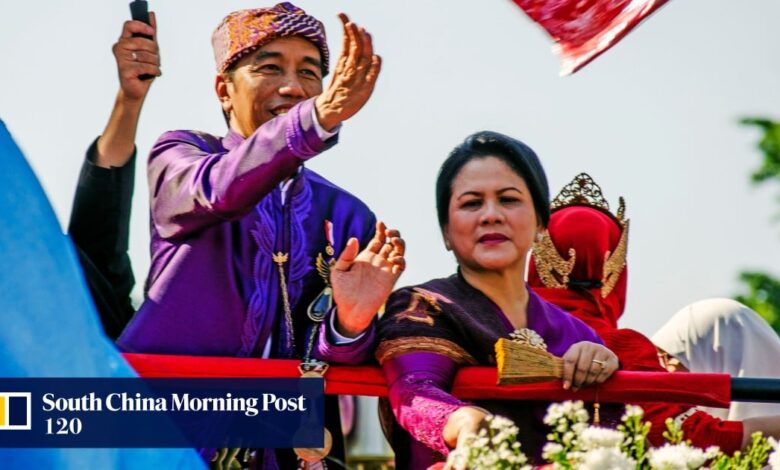
[ad_1]
“What a plot twist! Someone who was respected and held in high regard turns out to be a monster!” wrote a YouTube user in response to the video of Bocor Alus’ report.
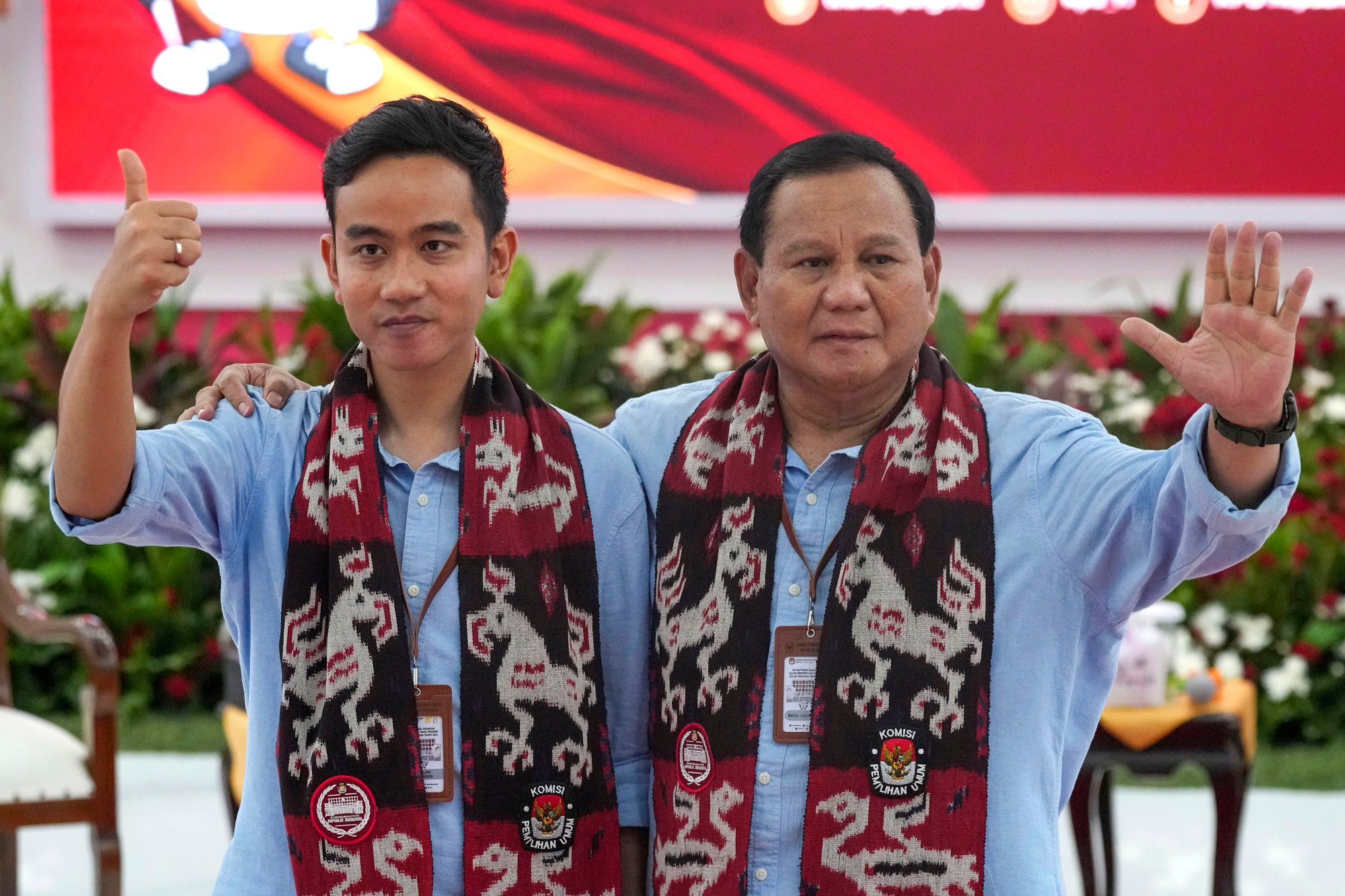
Why Indonesia’s Gen Z and millennials could determine nation’s next leader
Why Indonesia’s Gen Z and millennials could determine nation’s next leader
In its reporting, Tempo claimed its unnamed sources were members of the president’s extended family who were not in favour of the way that Gibran was to be “elevated” and decided to speak out.
“A cover story resting on such debatable evidence seems unnecessary. It was as if they deliberately targeted Iriana,” Suryakusuma wrote.
Indonesian culture doesn’t brook powerful women, so the idea that a presidential wife could wreak such havoc with our laws might produce greater public outrage
Indonesian human rights lawyer and former lawmaker Nursyahbani Katjasungkana called the allegations against Iriana “gender-biased stigmatisation”.
“Iriana may have played a part [in Gibran’s candidacy], but her role couldn’t have eclipsed that of the president’s, so why sacrifice her on the altar like a scapegoat?” she said to This Week In Asia.
Nursyahbani said the misleading narrative reduced Widodo’s culpability by casting Iriana as the villain. “Indonesian culture doesn’t brook powerful women, so the idea that a presidential wife could wreak such havoc with our laws might produce greater public outrage.”
The Indonesian constitution does not mention nor regulate the role of a first lady but, traditionally, they perform ceremonial duties, accompany the president at public engagements and oversee their own charitable endeavours.
Zahrotun Nuraini, 22, a student activist from Salatiga, Central Java, said from what she had seen on social media, misogyny was a palpable factor in the allegations about Iriana’s alleged meddling in state matters.
“Lots of netizens jokingly sum up the issue by saying [Gibran’s candidacy] started with the ambition of an ‘emak-emak (housewife)’, which is a demeaning term in itself, and that ambition has now endangered the future of the nation.”
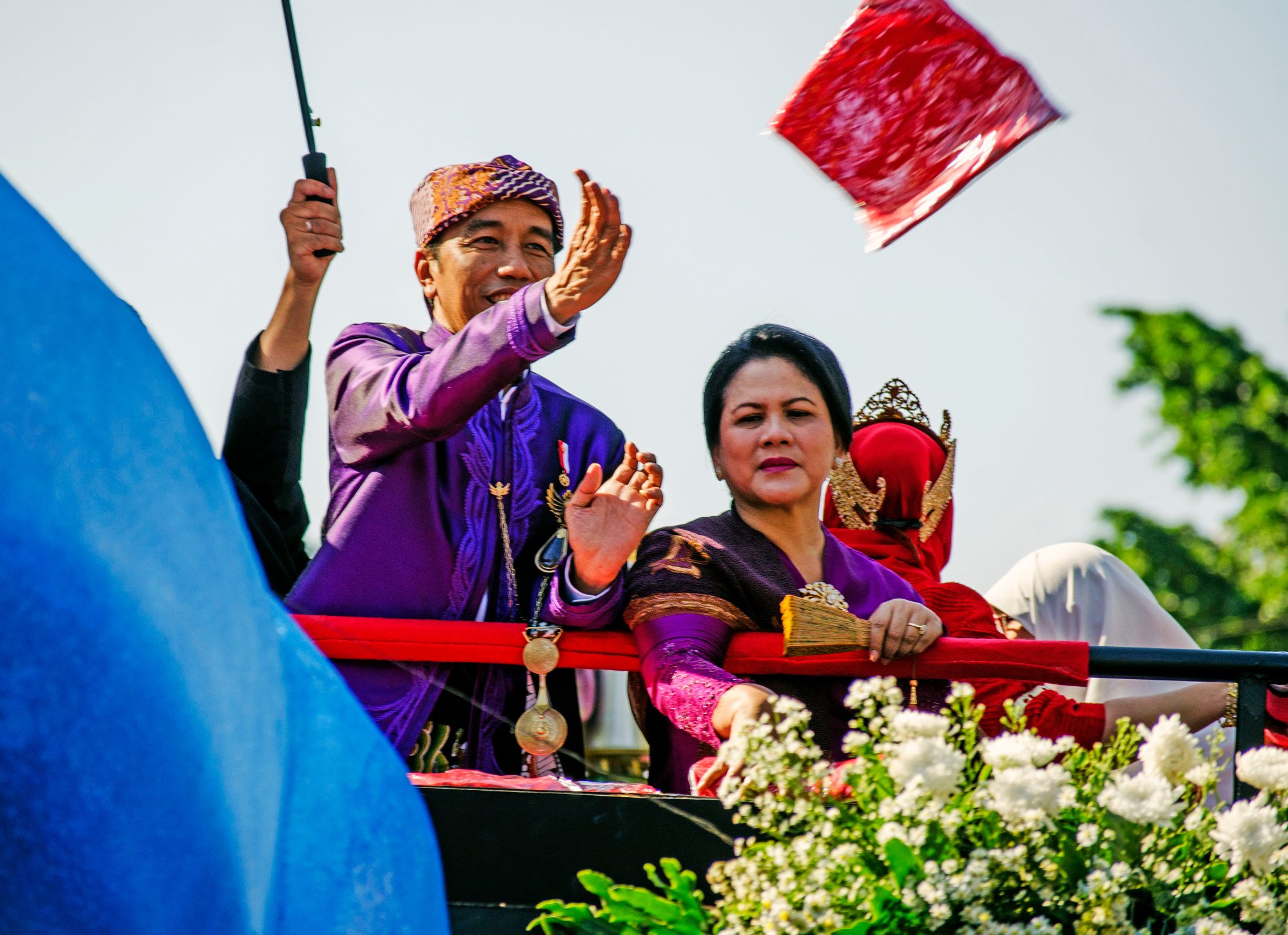
‘The latest victim’
Made Supriatma, a political scientist and research fellow at the ISEAS–Yusof Ishak Institute, defined Iriana’s stigmatisation as an expression of “political misogyny”.
“It’s habitual for those not wanting to criticise Jokowi directly to blame those in his inner circle,” he said, referring to the Widodo by his popular nickname. “Iriana is no doubt the latest victim.”
Made said past Indonesian first ladies also bore the brunt of their husbands’ “failings”.
During the 1960s rule of Indonesia’s first president Sukarno, his Japanese-born fifth wife Naoko Nemoto, better known as Dewi Sukarno, was often targeted by anti-Sukarno protesters who derogatorily referred to her as “Gundik Jepang” or “the Japanese Concubine”.
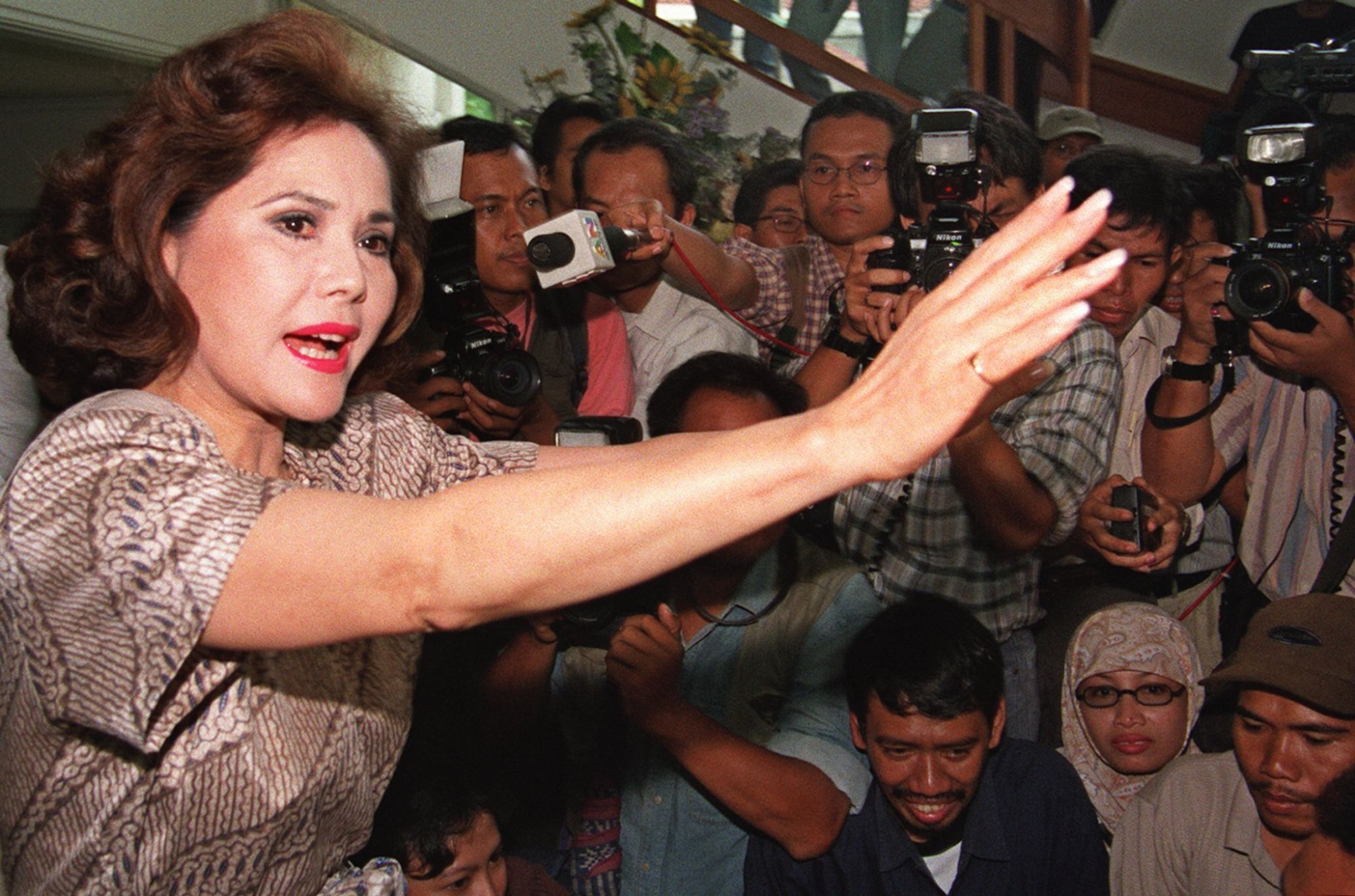
Indonesia’s next first lady, Tien Suharto, only fared slightly better. Following Suharto’s political downfall in 1998 after 32 years of corrupt rule, his wife was often blamed for being “rapacious”.
Widodo’s immediate predecessor, Susilo Bambang Yudhoyono, was often derided over the perceived influence that his wife Kristiani Herrawati – known well for her nickname Ani – had on him.
When the Yudhoyonos’ eldest son, Bambang Harimurti, quit the army in 2017 to enter Jakarta’s gubernatorial election, it was rumoured he had been pressured by his “ambitious” mother to run.
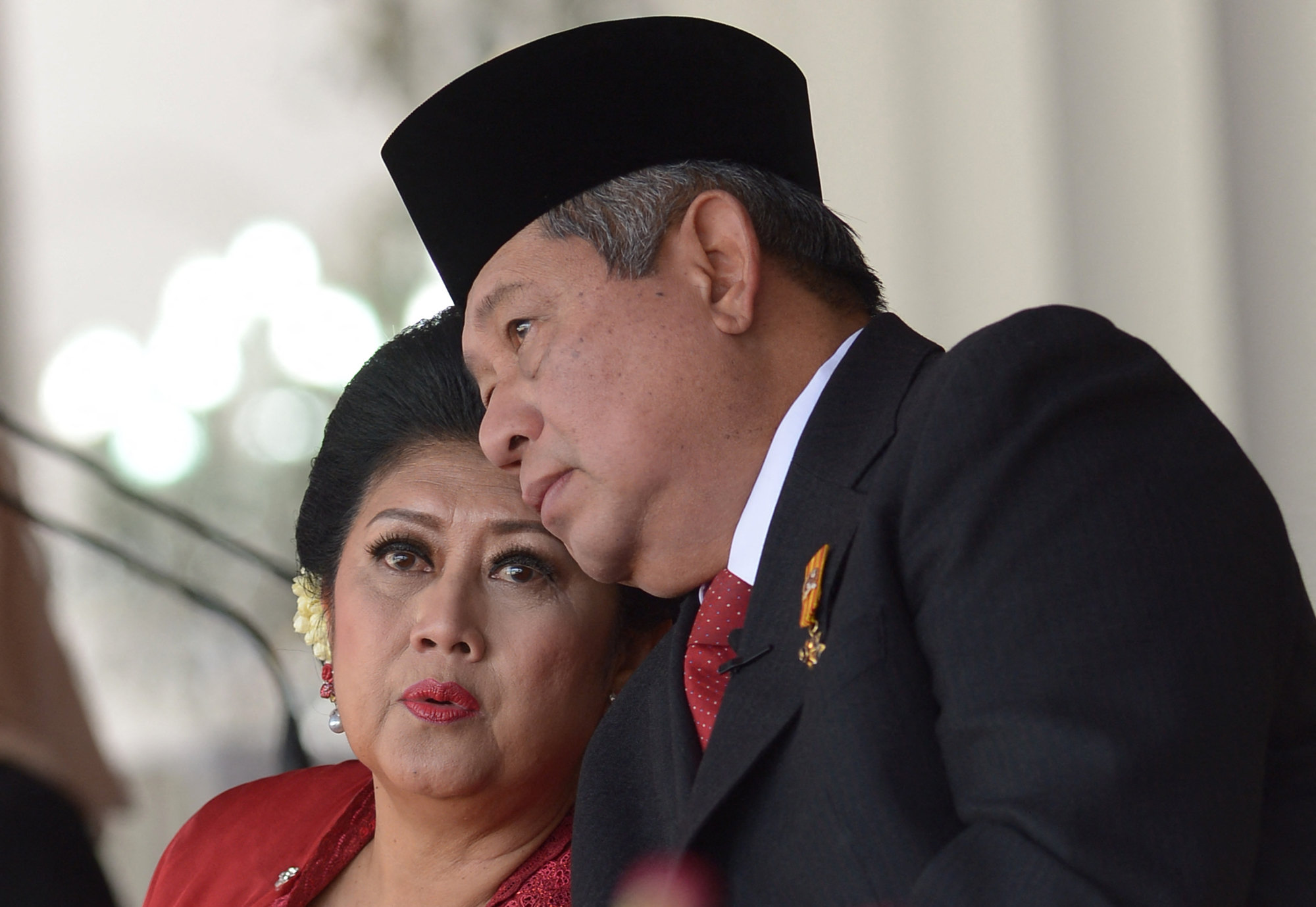
Made pointed out misogyny has long been a fixture in Indonesian politics.
He gave the example of the ruling PDI-P’s chairwoman and former president Megawati Sukarnoputri, who famously lost Indonesia’s first direct presidential election in 2004 to Susilo Bambang Yudhoyono, a retired general and her own ex-minister.
“A huge part of her lack of mass appeal is that she is a woman,” Made said.
A poll of Indonesians by research group Litbang Kompas in late January found that 94.9 per cent of respondents knew who Megawati was, making her the most well-known political leader in Indonesia, but her “acceptability” rating was only 51.8 per cent.
Prabowo was the second-most well-known politician at 95.5 per cent, but had a significantly higher acceptability score of 72.2 per cent.
Indonesia election 2024: will Prabowo’s choice of running mate backfire on him?
Indonesia election 2024: will Prabowo’s choice of running mate backfire on him?
Anindya Shabrina Prasetyo, 27, who is running for regional parliament in East Java for the first time next year as part of the Labour Party, said she recently experienced the misogyny in politics first-hand.
“Ever since I announced my candidacy, I’ve had to contend with more expressions of hatred and cynicism from people in general, including threats of physical violence.”
Anindya said she suspected it had something to do with her being a woman candidate because none of her male colleagues had the same experience.
“Unfortunately, many in our society believe it’s fine to bring down a woman with smear campaigns, as it usually carries less risk for the perpetrator than if the target was a man,” she said.
Anindya said politics in Indonesia remained a male-dominated sphere, but she hoped that local political parties would do their utmost to devise protection mechanisms so women leaders like her had a real chance.
“More importantly, we women must show solidarity to other women who experience misogyny, instead of helping perpetuate it by doing the same.”
[ad_2]
Source link





